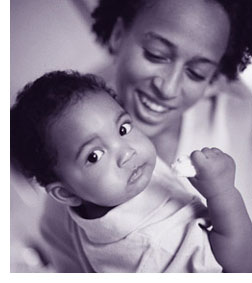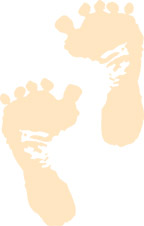 |
Printable PDF (196K)
Sickle Cell Disease and
Sickle Cell Carrier Status
 What is sickle cell disease? What is sickle cell disease?
Sickle cell disease is an inherited disorder that affects red blood cells. Sickle cell disease affects more than 72,000 Americans, primarily those of African heritage, but also those of Arabian, Asian, Caribbean, Indian, Mediterranean, and South and Central American ancestry. The most common types of sickle cell disease are SS, SC and S beta thalassemia. Other more rare forms include SD- Punjab, SO Arab, S Lepore and SE disease. Sickle cell disease is a lifelong condition that may result in serious health problems. Complications can include painful episodes (crises), anemia (low hemoglobin), organ damage, infections, lung problems, leg ulcers, bone damage and strokes.
What is sickle cell trait or carrier status?
Sickle cell trait (also known as being a carrier) occurs when a person has one gene for sickle hemoglobin and one gene for normal hemoglobin. Approximately one in ten African-Americans carries sickle cell trait. People who are carriers generally do not have any medical problems and lead normal lives. If you are a carrier you cannot develop sickle cell disease.
 What is hemoglobin? What is hemoglobin?
Hemoglobin is found in all red blood cells and carries oxygen from the lungs to tissues and organs throughout the body. Normal red blood cells are soft, smooth, round and can move easily through the body. When affected by sickle cell disease, the red blood cells become rigid, sticky, and sickle shaped. This results in periodic plugging of blood vessels, thereby preventing delivery of oxygen to tissues and organs.
Why is it important to know if you carry an abnormal hemoglobin?
Like height and eye color, a person inherits genes that produce hemoglobin from each parent. It is important to identify people who are carriers of an abnormal hemoglobin so they will be aware of their risk of having children with sickle cell disease. If both parents are carriers of sickle cell trait or another hemoglobin change (like hemoglobin C), there is a 25% (or 1 in 4) chance that they will have a child with sickle cell disease. The couple also has a 25% chance of having a child with regular hemoglobin (AA) and a 50% chance of having a child with a hemoglobin trait like the parents. It is recommended that people who carry a hemoglobin trait meet with a genetic counselor to obtain more information.

Additional Information
 Illinois Department of Public Health
Genetics and Newborn Screening Program
535 W. Jefferson St., 2nd Floor
Springfield, IL 62761
217-785-8101
TTY (hearing impaired use only)
800-547-0466
www.idph.state.il.us/HealthWellness/genetics.htm

 |
|
Illinois Department
of Public Health
535 West Jefferson Street
Springfield, Illinois 62761
Phone 217-782-4977
Fax 217-782-3987
TTY 800-547-0466
Questions or Comments |
|

